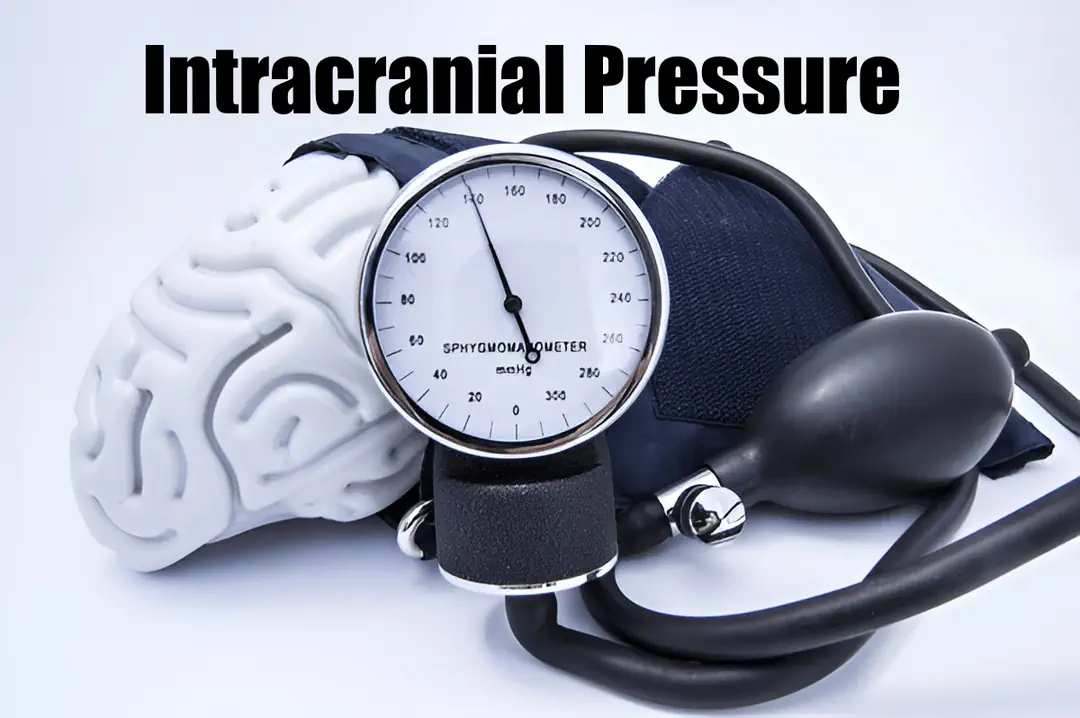Intracranial pressure (ICP) is a key indicator of brain health. It shows the balance between the skull’s contents. High brain pressure, or cranial hypertension, can lead to serious issues like cerebral edema and hydrocephalus. Knowing about ICP helps doctors and patients understand and treat neurological problems better.
Key Takeaways
- Intracranial pressure (ICP) is the pressure exerted within the skull, affecting the brain and its surrounding structures.
- Abnormal ICP levels, whether elevated or decreased, can have serious consequences for brain function and overall health.
- Identifying the underlying causes of abnormal ICP, such as medical conditions, traumatic brain injury, or other factors, is crucial for effective treatment.
- Diagnostic methods, including imaging tests and invasive monitoring, are used to measure and evaluate ICP levels.
- Treatment approaches aim to manage the underlying condition, reduce ICP, and prevent long-term neurological complications.
Understanding Intracranial Pressure and Its Impact on Brain Health
Intracranial pressure (ICP) is key to keeping the brain healthy. People usually have a normal ICP range of 7-15 mmHg. But, some health issues can make the pressure too high or too low, harming the brain.
Normal vs. Abnormal Pressure Levels
When ICP is normal, it helps cerebrospinal fluid (CSF) flow well. This balance is important for the brain’s health. Too much pressure, or intracranial hypertension, can cause brain swelling or bleeding. On the other hand, too little pressure, or hypotension, can happen if there’s a CSF leak.
The Role of Cerebrospinal Fluid
Cerebrospinal fluid (CSF) is vital for brain health. It protects the brain, gives it nutrients, and removes waste. Problems with CSF can lead to high or low ICP, which can cause brain issues.
Brain Tissue and Blood Volume Balance
The brain, blood, and CSF must stay balanced in the skull. Autoregulation helps keep this balance. But, if it’s off, it can harm the brain and overall health.
Doctors and patients need to understand ICP. Knowing how it affects the brain helps in diagnosing and treating brain problems.
Common Signs and Symptoms of Elevated Brain Pressure
Increased intracranial pressure can show itself in many ways. A severe headache is a common sign. It feels like a throbbing or pounding pain. This headache can get worse when you move or change positions.
It often comes with nausea and vomiting. These symptoms can be very uncomfortable.
Other signs include vision changes. You might see things blurry, double, or even lose vision. Some people might feel confused or disoriented. In severe cases, they could become very sleepy or even fall into a coma.
Papilledema is another warning sign. It’s when the optic nerve at the back of the eye swells. A doctor can spot this during an eye exam. It’s a serious sign that needs quick medical help.
If you or someone you know is showing these symptoms, get help immediately. Not treating elevated brain pressure can lead to serious problems. It’s important to catch it early to keep your brain healthy and avoid lasting damage.
| Symptom | Description |
|---|---|
| Headache | Severe, throbbing or pounding pain that may worsen with movement or position changes |
| Nausea and Vomiting | Often accompanying the intense headache |
| Vision Changes | Blurred vision, double vision, or temporary vision loss |
| Altered Consciousness | Confusion, disorientation, lethargy, or coma |
| Papilledema | Swelling of the optic nerve, requiring prompt medical attention |
Primary Causes and Risk Factors of Intracranial Pressure
Elevated intracranial pressure (ICP) can come from many sources. This includes medical conditions, brain injuries, and health factors. Knowing what causes high brain pressure is key to treating it well.
Medical Conditions Leading to ICP
Some medical issues can raise ICP. For example, brain tumors grow and put pressure on the brain. Meningitis, a serious infection, causes swelling in the brain. Also, strokes can disrupt blood flow and increase pressure.
Traumatic Brain Injury Effects
Head trauma from accidents or injuries can harm the brain. It can upset the balance of fluids and tissues in the skull. This can lead to a dangerous spike in ICP, needing quick medical help.
Underlying Health Conditions
Some health issues can also raise ICP. Idiopathic intracranial hypertension is a condition with no clear cause. Problems with fluid balance, like kidney or liver disease, can also increase brain pressure.
| Condition | Mechanism of ICP Elevation |
|---|---|
| Brain Tumors | Abnormal growth and expansion within the confined space of the skull |
| Meningitis | Inflammation and swelling of the brain and surrounding tissues |
| Stroke | Disruption of blood flow and fluid balance within the brain |
| Traumatic Brain Injury | Damage to brain tissues and disruption of fluid dynamics |
| Idiopathic Intracranial Hypertension | Increased pressure without an identifiable underlying cause |
| Kidney/Liver Disease | Impaired fluid balance regulation in the body |
Knowing the main causes and risk factors of high ICP helps doctors. They can then work on early detection, prevention, and treatment of this serious condition.
Diagnostic Methods and Treatment Approaches
Healthcare experts use many tools to manage intracranial pressure, including imaging and procedures, to find and fix problems. These methods help keep the brain healthy.
Imaging Techniques: CT scans and MRI help see the brain. They find issues that raise intracranial pressure (ICP). These tools give doctors the details they need to plan treatment.
Invasive Procedures: Sometimes, doctors need to do more to diagnose. This includes a lumbar puncture or ICP monitoring. A lumbar puncture uses cerebrospinal fluid to check ICP, and ICP monitoring measures pressure in the skull, helping doctors make decisions.
Treatment Approaches: The main goal is to lower pressure and protect the brain. Doctors might use medicines like osmotic diuretics. In serious cases, surgery like decompressive craniectomy may be needed.
Doctors use a full plan to manage intracranial pressure. They use imaging, targeted treatments, and care tailored to each patient. This approach is key to treating this serious condition.
Conclusion
Understanding intracranial pressure (ICP) is key to keeping our brains healthy. Knowing the signs of high ICP helps us act fast. This means we can get the right ICP management and medical help when needed.
Regular brain health monitoring is also important. It lets us catch problems early. This way, we can get the right neurological care and prevent issues.
ICP can be caused by many things, like medical conditions or head injuries. Knowing this helps us take steps to prevent it. Thanks to new ways to diagnose and treat ICP, doctors can help patients better.
By learning more about ICP, we can protect our brain health. This leads to a better life for everyone. It’s all about being proactive and informed.
The future looks bright for managing ICP better. With more preventive measures and effective treatments, we can all live healthier. Let’s keep up the good work in brain health monitoring and support each other.
FAQ
What is intracranial pressure (ICP)?
Intracranial pressure (ICP) is the pressure inside the skull. It holds the brain, cerebrospinal fluid, and blood. Keeping ICP healthy is key for brain function and overall health.
What are the symptoms of elevated intracranial pressure?
Signs of high ICP include severe headaches and nausea. You might also feel vomiting, vision changes, and feel less alert. Severe cases can lead to seizures and swelling of the optic nerve.
What are the primary causes of elevated intracranial pressure?
High ICP can come from many sources. This includes brain tumors, head injuries, strokes, and infections like meningitis. Health issues like idiopathic intracranial hypertension can also raise pressure.
How is intracranial pressure measured and diagnosed?
Doctors use CT scans and MRIs to check ICP. They also do lumbar punctures and use ICP monitoring devices. These methods help find the cause and decide on treatment.
What are the treatment options for managing elevated intracranial pressure?
To manage high ICP, doctors might use medicines like osmotic diuretics. In serious cases, surgery like decompressive craniectomy might be needed. This helps reduce pressure and protect the brain.
Can intracranial pressure be prevented?
Some causes of high ICP can’t be prevented. But, taking care of your brain health can lower the risk. This includes managing chronic health issues.
How does the role of cerebrospinal fluid (CSF) affect intracranial pressure?
CSF is vital for keeping ICP in check. It moves around the brain and spinal cord. Problems with CSF production or flow can lead to high ICP.
What is the importance of intracranial compliance and autoregulation?
The skull’s ability to change volume and the brain’s blood flow control are key. They help keep ICP healthy and protect the brain from harm.
How can traumatic brain injuries affect intracranial pressure?
Head injuries can upset the balance inside the skull. This can cause pressure to rise, needing quick medical care.
What is the role of imaging techniques in diagnosing and monitoring intracranial pressure?
Imaging like CT scans and MRIs is crucial. They help find the cause of high ICP and guide treatment. These tools show important details about the brain.








